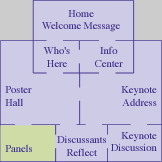Posted by:
Kathryn Donald
Posted on: May 07, 2002 at 8:10 PM
Message:
Nancy Love asked: Do you think that high-stakes tests foster improvement in historically low-performing, high-poverty schools? Is opposing high-stakes testing a luxury that high-performing affuent schools can afford? I was surprised by responses to these questions from public elementary teachers I interviewed in rural, suburban, inner-city and upperclass schools. They enlightened me during a small study done for the Office of the Superintendent of Public Instruction at the beginning of the Washington state adoption of Standards and testing a few years ago.
Teachers from one of inner city lower performing schools on past testing were the least concerned about the high stakes testing. They explained that they believed that their "job was to simply get their students up to grade level". They felt that the testing was meaningless for their students as they had no chance of doing well when not at grade level. At that time they did not feel they needed to be concerned about the reform or how the testing reflected on them either because the parents shared their goal - to have children reach grade level.
The rural school teachers and principal shared this point of view and were more focused on adopting a religious based curriculum the new principal had brought than on what the reform was asking of them.
The suburban school respondents had embraced educational reform several years before so they did not express concern or resistance. Their past work was validated. In contrast, teachers and principals who were the most worried about the reform and testing were in the upper class school where the students had always tested at the top in the state. Several confessed that the very bright, above grade-level students in their classes may have scored well on their own and that they as teachers may not have taught them as well as they could have. They seemed the most motivated to improve their instruction and the most concerned about public reporting of scores due to the competition for students between the schools in the district.
|


